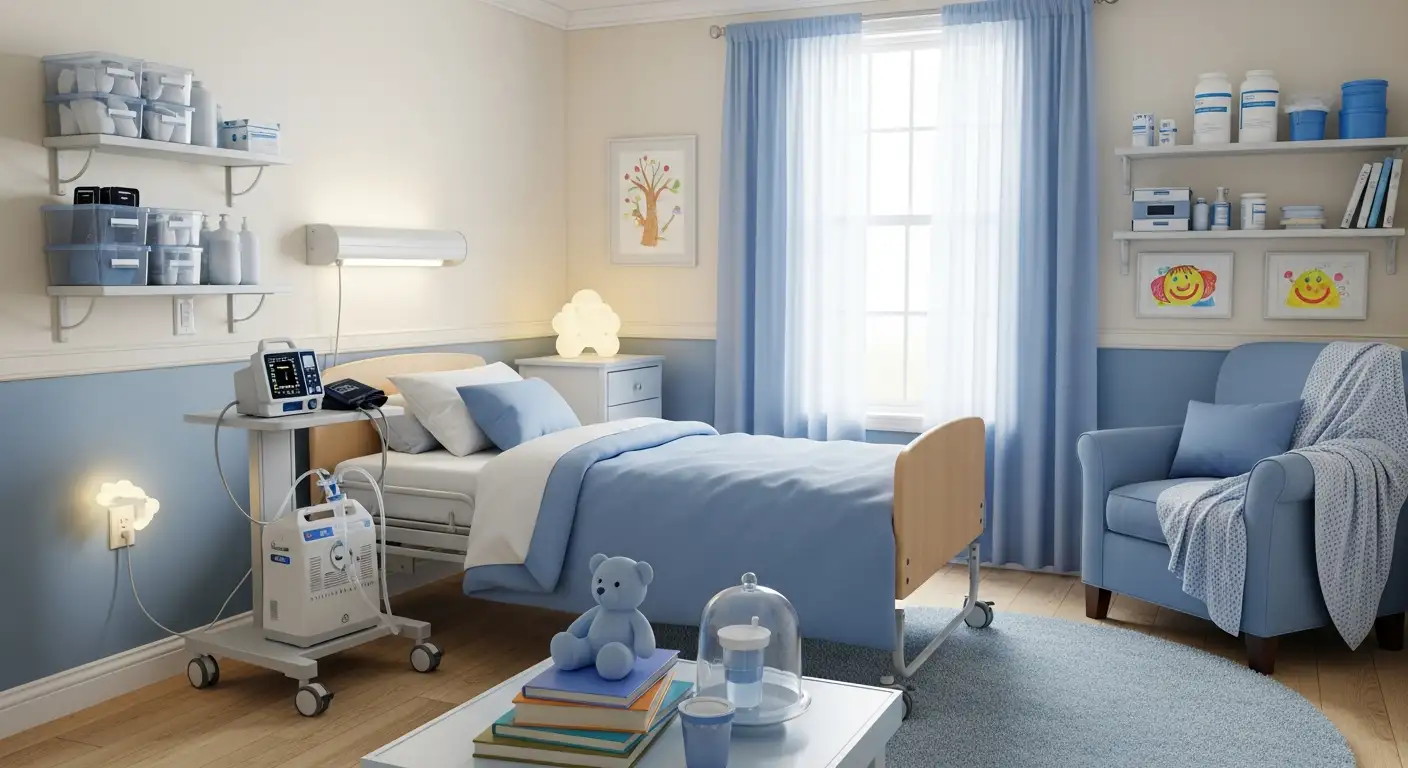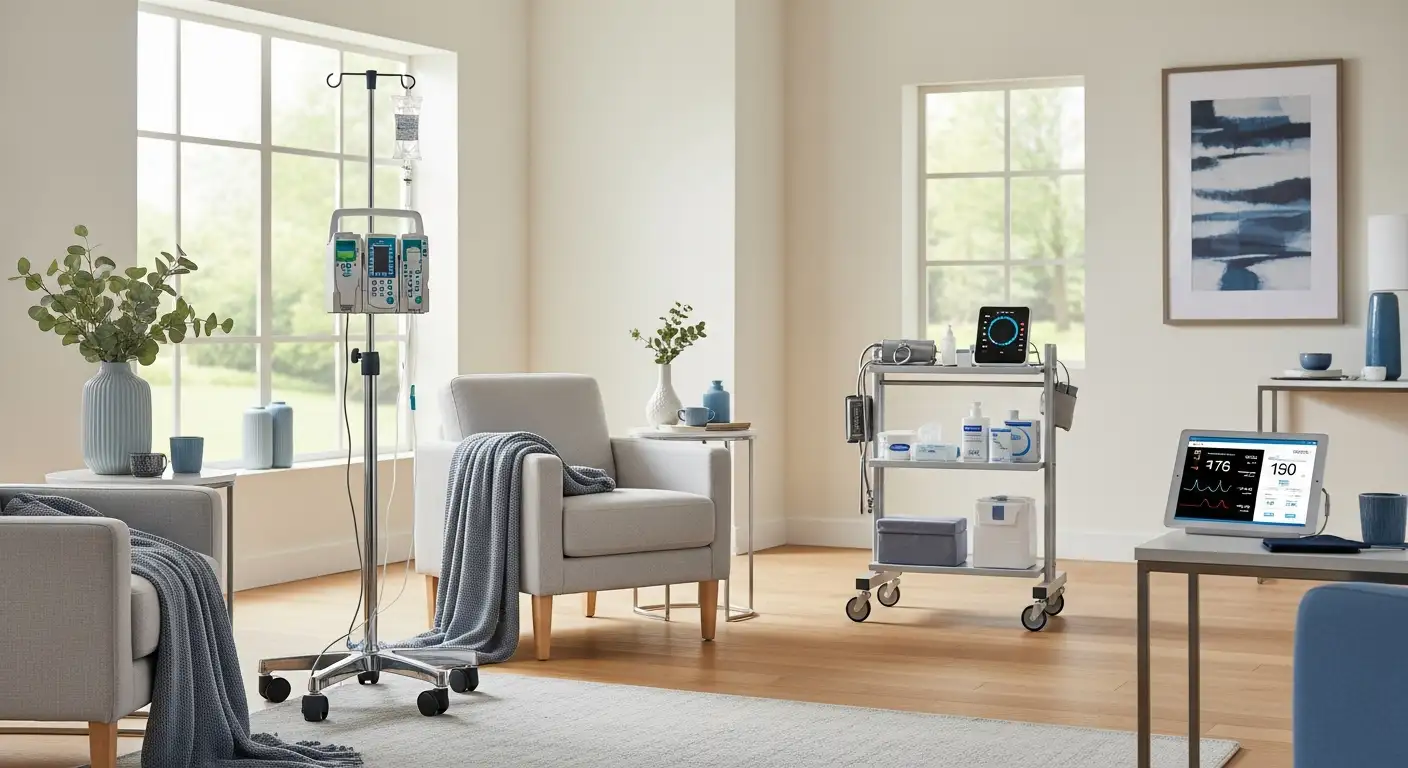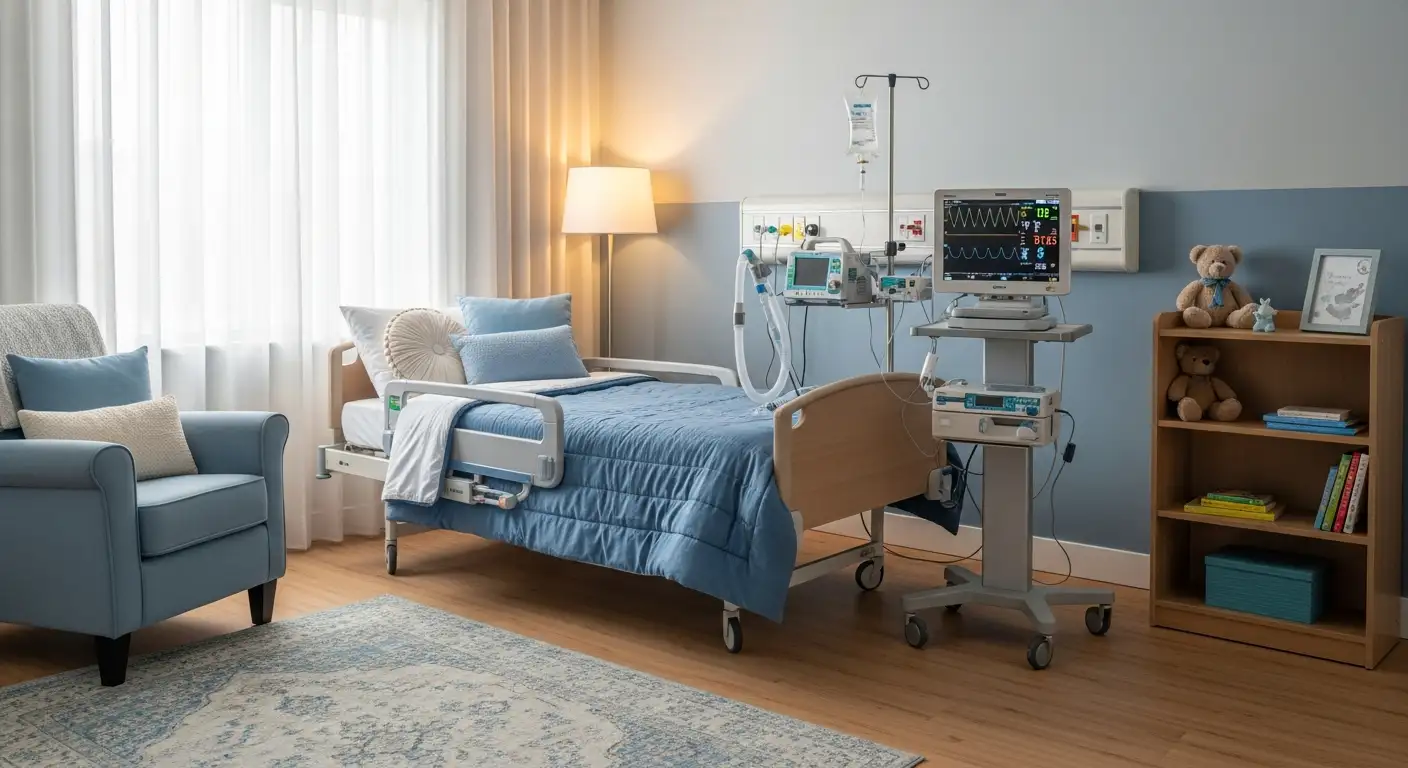Understanding Pediatric Home Care for Children with Developmental Coordination Disorder
Pediatric home care is a critical support system for children managing developmental coordination disorder (DCD), a condition affecting motor skill development and coordination. By delivering specialized medical and therapeutic services in the comfort of a child's home, this care model addresses both the physical and emotional needs of children while easing family burdens. This article explores how pediatric home care services support children with DCD, highlighting the diverse range of therapies, the benefits of home-based care, and the programs that empower families to participate actively in care delivery.
Comprehensive In-Home Care Services Tailored for Children with Developmental Coordination Disorder
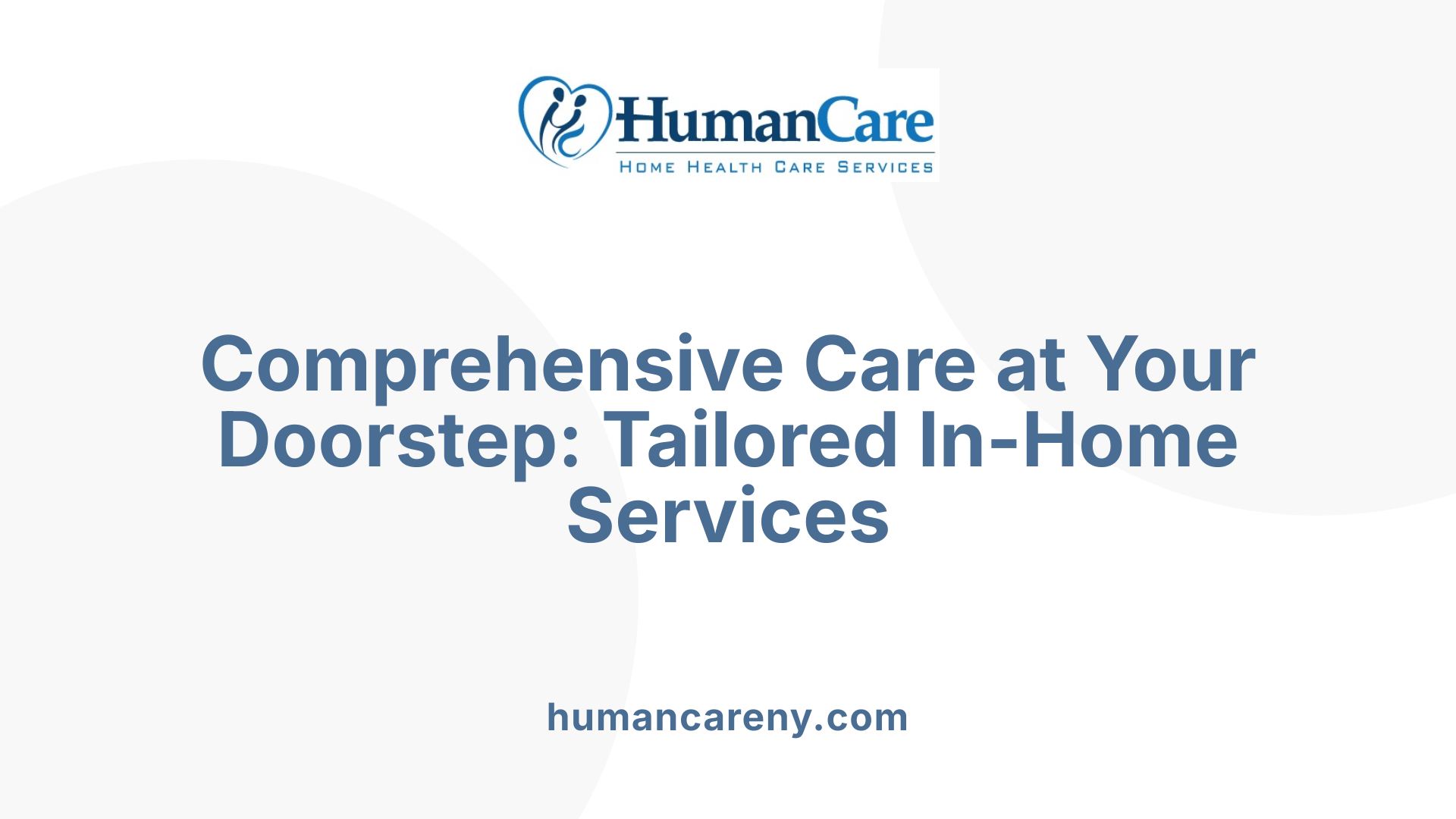
What range of pediatric home care services are available?
Pediatric home health agencies offer a broad spectrum of in-home services designed to meet the diverse needs of children with developmental coordination disorder (DCD). These include skilled nursing care, therapeutic services such as physical and occupational therapy, home health aides, medical equipment delivery, nutritional support, and medical social services. This comprehensive approach ensures a holistic support system to address both medical and developmental challenges.
What therapeutic interventions are included, particularly physical and occupational therapy?
Physical and occupational therapy form the cornerstone of therapeutic interventions for children with DCD in the home setting. These therapies focus on improving motor skills, coordination, balance, and fine motor tasks. Because therapy takes place in the child's familiar environment, it reduces stress and allows therapists to tailor interventions effectively by observing and adjusting care based on the home environment.
What roles do home health aides and nursing services play?
Home health aides assist children with daily living tasks such as bathing, dressing, and mobility support, promoting independence while ensuring safety. Nursing services provide skilled medical care including medication management, health monitoring, and wound care. Nurses also coordinate care plans and communicate with other healthcare providers to ensure comprehensive management of the child's condition.
How are medical equipment and nutritional support provided?
Medical equipment necessary for daily functioning — such as respiratory aids, mobility devices, or adaptive tools — are delivered and maintained in the child's home environment. Nutritional support involves tailored plans and supplies suited to the child's dietary needs, with adjustments made as the child's condition evolves.
How is coordination with healthcare providers managed?
Home health care teams work closely with pediatricians and specialists. They provide frequent home visits, act as intermediaries, and maintain ongoing communication to reduce the number of in-office visits. Initial referrals typically come from doctors during or after hospitalizations, followed by assessments and individualized care planning.
What are the benefits of home-based therapies for motor and coordination skills?
Therapies delivered at home enable children to engage in interventions in a low-anxiety, familiar setting with family involvement. This environment improves motivation, communication, and adherence to therapy routines. Additionally, hands-on observation by therapists allows for immediate adaptation of therapy to real-life challenges, accelerating gains in motor and coordination skills crucial for children with DCD.
Personalized Care Plans and Family-Centered Approach in Pediatric Home Health
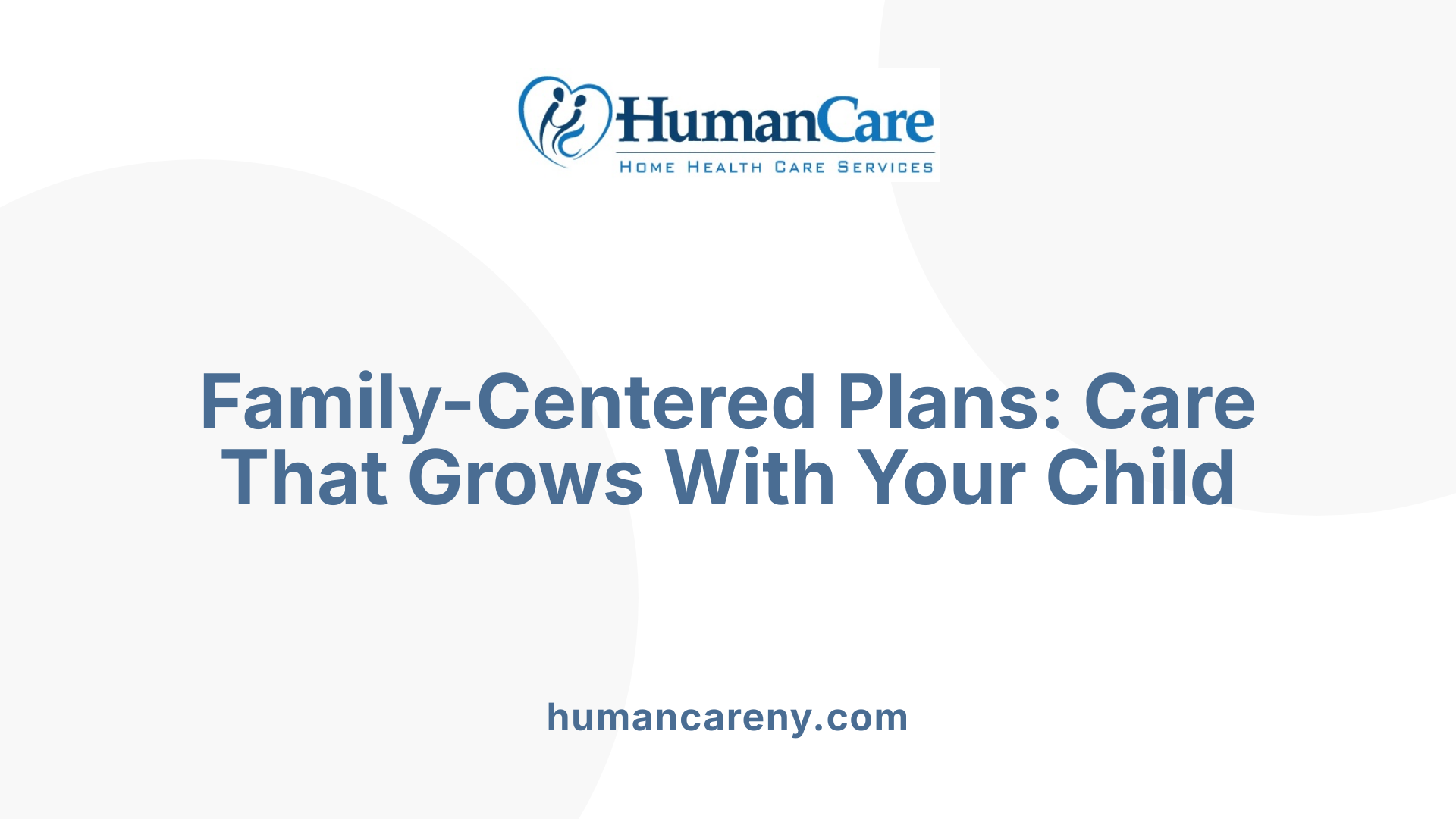
Why Are Tailored Care Plans Crucial for Children in Home Health Care?
Pediatric home health care focuses on creating care plans that evolve with the child's changing medical and developmental needs. Specialized clinicians conduct ongoing assessments to ensure treatments, therapies, and supports align with the child's current condition.
How Does Collaboration Between Specialists and Families Work?
Care plans are developed through close collaboration involving doctors, therapists, nurses, and family members. This team approach ensures medical expertise combines with intimate knowledge of the child's preferences and home environment, facilitating personalized, effective care.
How Does Scheduling Flexibility Benefit Children and Families?
Families can schedule home health visits around their daily routines, allowing children to continue attending school and participate in regular activities uninterrupted. This flexibility reduces stress and maintains the child's normalcy and stability.
What Emotional Support Does Home Health Care Provide to Families?
Providing care in a familiar home setting encourages family involvement, which strengthens emotional bonds and offers comfort to the child. Caregivers often develop trusting relationships, improving the child's overall wellbeing and reducing anxiety.
In What Ways Do Caregivers Monitor and Adjust Care?
Home health providers closely observe the child's health and development, allowing prompt modifications to therapy or medical plans when needed. This careful monitoring helps avoid complications and supports continuous improvement.
How Does Pediatric Home Care Empower Families?
Providers assist families in managing care demands by offering education, preparing them for emergencies, and supplying backup support. This empowerment increases parental confidence and helps reduce caregiver stress, contributing to family stability.
The Impact of Home Environment on Therapy Effectiveness and Emotional Well-being
Benefits of Delivering Therapy in a Familiar Setting
Administering therapies such as physical, occupational, and speech therapy at home offers significant advantages for children. Familiar surroundings help reduce the child's anxiety and stress, which are often heightened in clinical or hospital environments. A comfortable home setting supports a more relaxed state, enabling children to engage better with therapeutic activities.
Reduction in Anxiety and Stress from Home Care
Being cared for in their own space allows children to maintain their daily routines and feel a sense of security. This consistency reduces emotional disturbances and behavioral issues, facilitating smoother therapy sessions and more effective healing.
Opportunities for Social Interaction and Communication Development
Home care naturally encourages interaction with family members and caregivers. This close contact promotes social skills and communication development, helping children avoid feelings of isolation often experienced in institutional settings. Moreover, therapeutic activities can be integrated into daily life, making progress more engaging and functional.
Safety Adaptations and Infection Risk Reduction
Home health care enables tailored safety modifications to the child’s living environment, minimizing risks linked to medical devices or mobility challenges. Additionally, staying at home reduces exposure to hospital-acquired infections, promoting faster recovery and better overall health.
Observation and Adjustment of Therapy According to Home Environment
Clinicians conducting therapies at home gain valuable insights by observing the child's natural environment. This allows for precise adjustments in treatment plans based on actual living conditions, ensuring therapy is practical and aligns with the child’s real-life needs.
Building Trust Between Child and Caregiver
Continuous, personalized interactions with dedicated home caregivers foster trust and emotional bonding. This relationship enhances the quality of care, encourages cooperation during therapy, and supports the child’s emotional well-being, making therapeutic interventions more effective.
Supporting Families Through Consumer Directed Personal Assistance Programs (CDPAP)
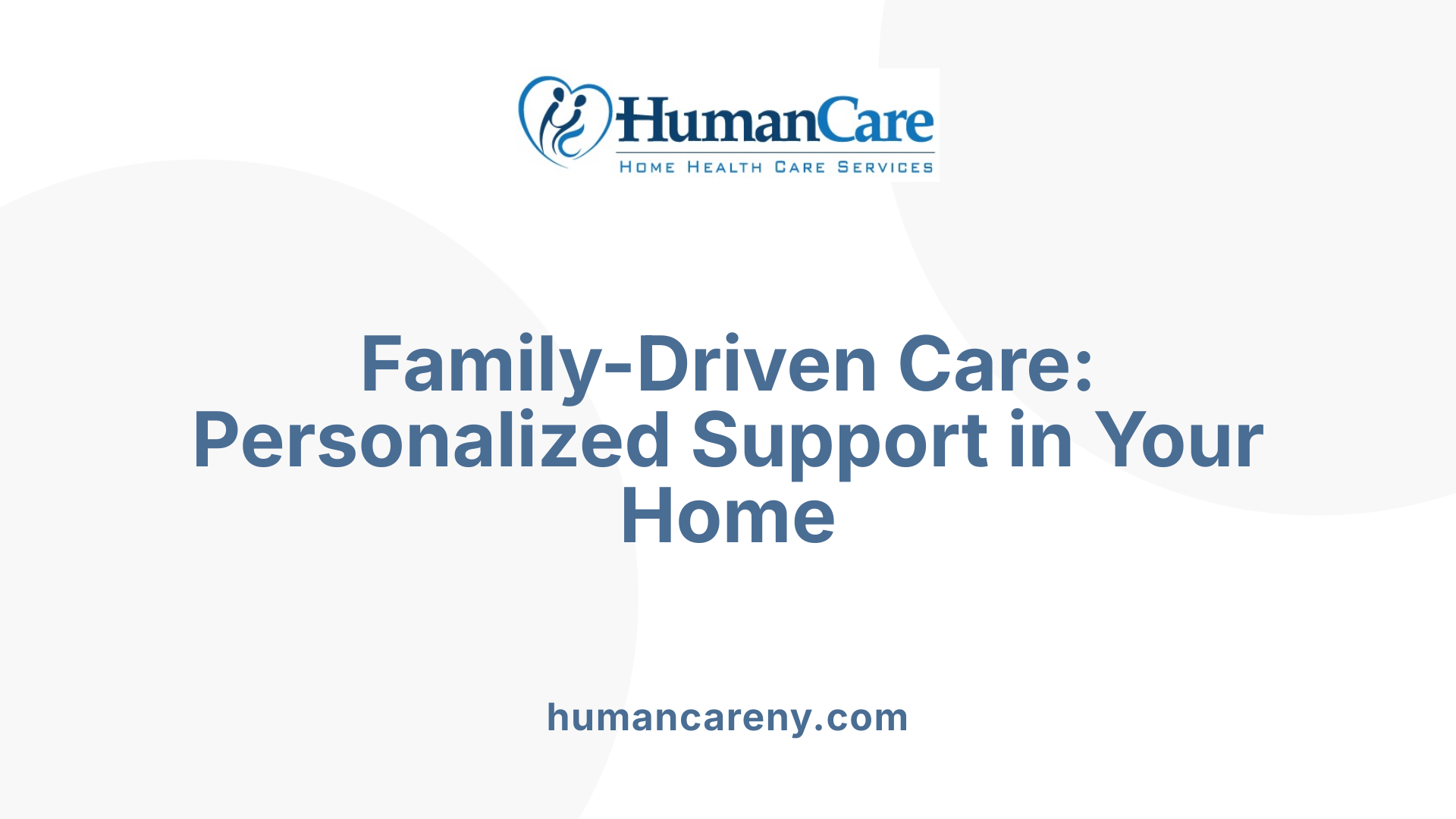
What is CDPAP and how does it support in-home care?
CDPAP, or the Consumer Directed Personal Assistance Program, is a Medicaid initiative that empowers families to take charge of their child's home health care. This program lets parents and guardians select and hire their own caregivers, often choosing trusted family members or friends. By doing so, CDPAP offers a unique level of flexibility and personal touch that traditional home care services might not provide.
How does recruitment of family members or friends as paid caregivers work?
Under CDPAP, caregivers do not need to be licensed professionals. Instead, children’s families can train and employ relatives or close friends, turning unpaid support into a paid role. This not only boosts caregiver availability and cultural familiarity but also strengthens emotional bonds, which are crucial for child development and comfort.
What flexibility and personalization does CDPAP offer?
CDPAP allows families to tailor care schedules and tasks to fit their daily routines and the child’s evolving needs. Parents can decide when and how caregivers provide services such as nursing, physical therapy assistance, and daily living help. This level of personalization promotes consistency in care, reduces stress, and helps children maintain their usual activities like school attendance.
How does CDPAP support independence and comfort for children and families?
Receiving care from familiar individuals within the home offers children a more comfortable and secure environment. This promotes quicker healing, less anxiety, and an improved sense of belonging. The direct involvement of families also means caregivers can closely monitor the child’s health, making timely adjustments to ensure optimal care.
How does CDPAP enhance control over care decisions and relationships?
By placing decision-making power in the hands of the family, CDPAP enhances control over who delivers care, when it happens, and how it is provided. This level of empowerment reduces reliance on institutional settings and fosters stronger, trust-based relationships between caregivers and children.
What are the benefits of CDPAP in reducing institutional care reliance?
With CDPAP, children with chronic or complex medical conditions can avoid repeated hospital stays or institutional placements. The program's focus on home-based, family-directed care not only improves quality of life but also reduces healthcare costs by minimizing hospital visits and emergency interventions.
CDPAP exemplifies an effective, family-driven approach to pediatric home health care. By combining flexibility, personalized support, and family empowerment, it enables children to thrive safely and comfortably in their own homes.
Challenges and Opportunities: Access and Quality in Pediatric Home Health Care
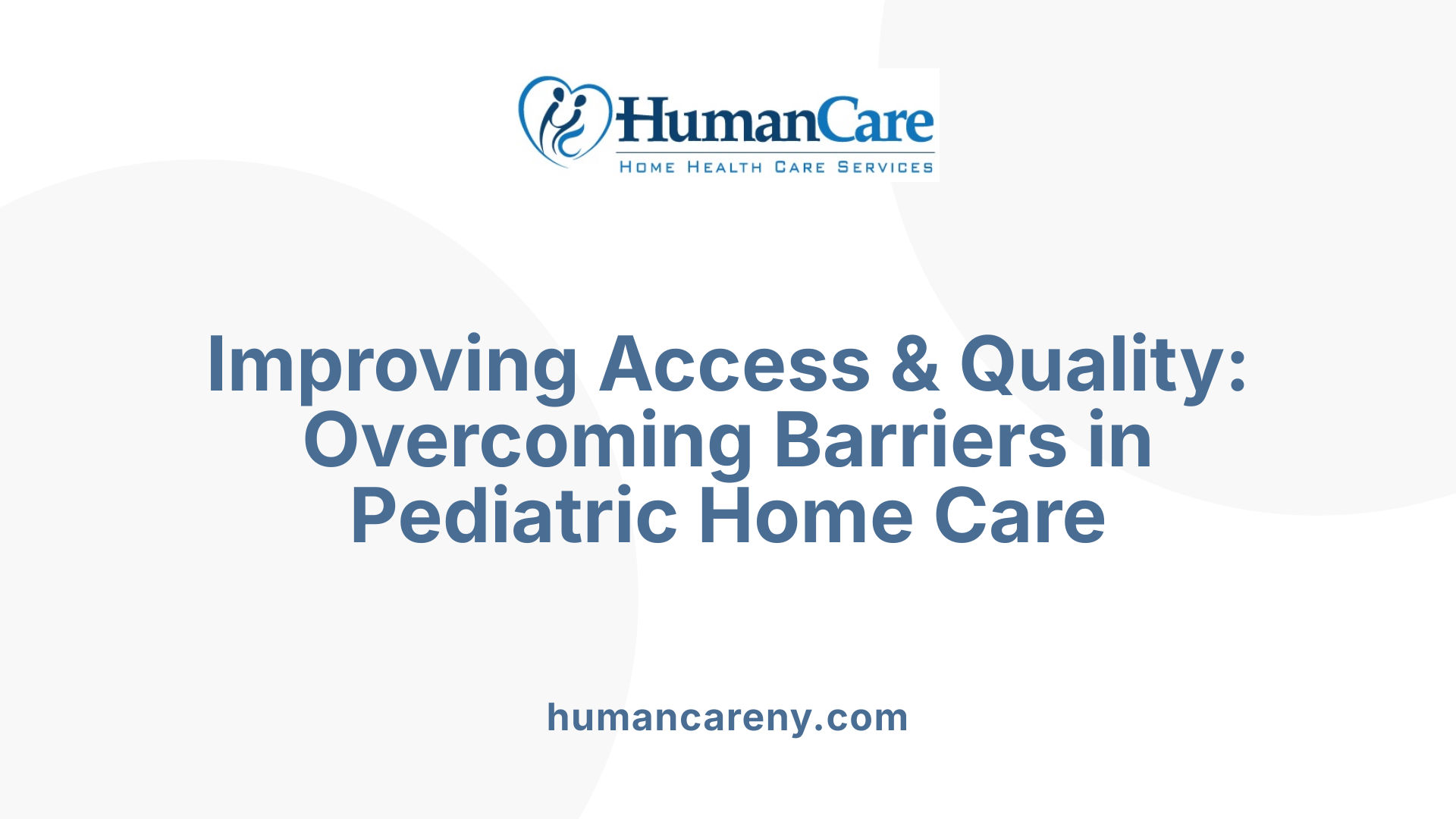
What are the main limitations in financing and workforce affecting pediatric home health care?
Pediatric home health care faces significant limitations due to inadequate financing and workforce shortages. These constraints restrict the availability and quality of services, leaving many children without consistent care at home.
How does inadequate home care impact health outcomes?
Insufficient home health care leads to adverse outcomes such as increased hospitalizations, emergency visits, medication errors, and complications from medical devices. Lack of proper support can jeopardize children's health stability and delay recovery.
What is the caregiver burden and how does it affect family stability?
Caregivers often deliver unpaid, highly skilled medical care. When home health care is insufficient, caregiver stress intensifies, negatively affecting family health and overall stability. This burden can lead to emotional exhaustion and financial strain.
How do socioeconomic and linguistic factors create disparities in home care?
Access and quality of pediatric home health care vary widely based on racial, linguistic, and socioeconomic status. These barriers prevent equitable care, leaving vulnerable children at risk of inadequate support.
What research needs exist for improving access and quality?
Future research priorities focus on evaluating child and family outcomes to better understand service effectiveness. There's also a critical need to develop improved care models, enhance workforce training, and address disparities in care delivery.
How can data-sharing and patient registries improve home care?
Establishing data-sharing consortia and patient registries presents an opportunity to strengthen pediatric home health care. Sharing information could improve research efforts, enable more coordinated care, and ultimately elevate care quality and accessibility.
These challenges highlight areas requiring dedicated attention and innovation to optimize home-based care for children with complex health needs.
Pediatric Home Health Care’s Role in Enhancing Recovery and Independence for Children with Developmental Coordination Disorder
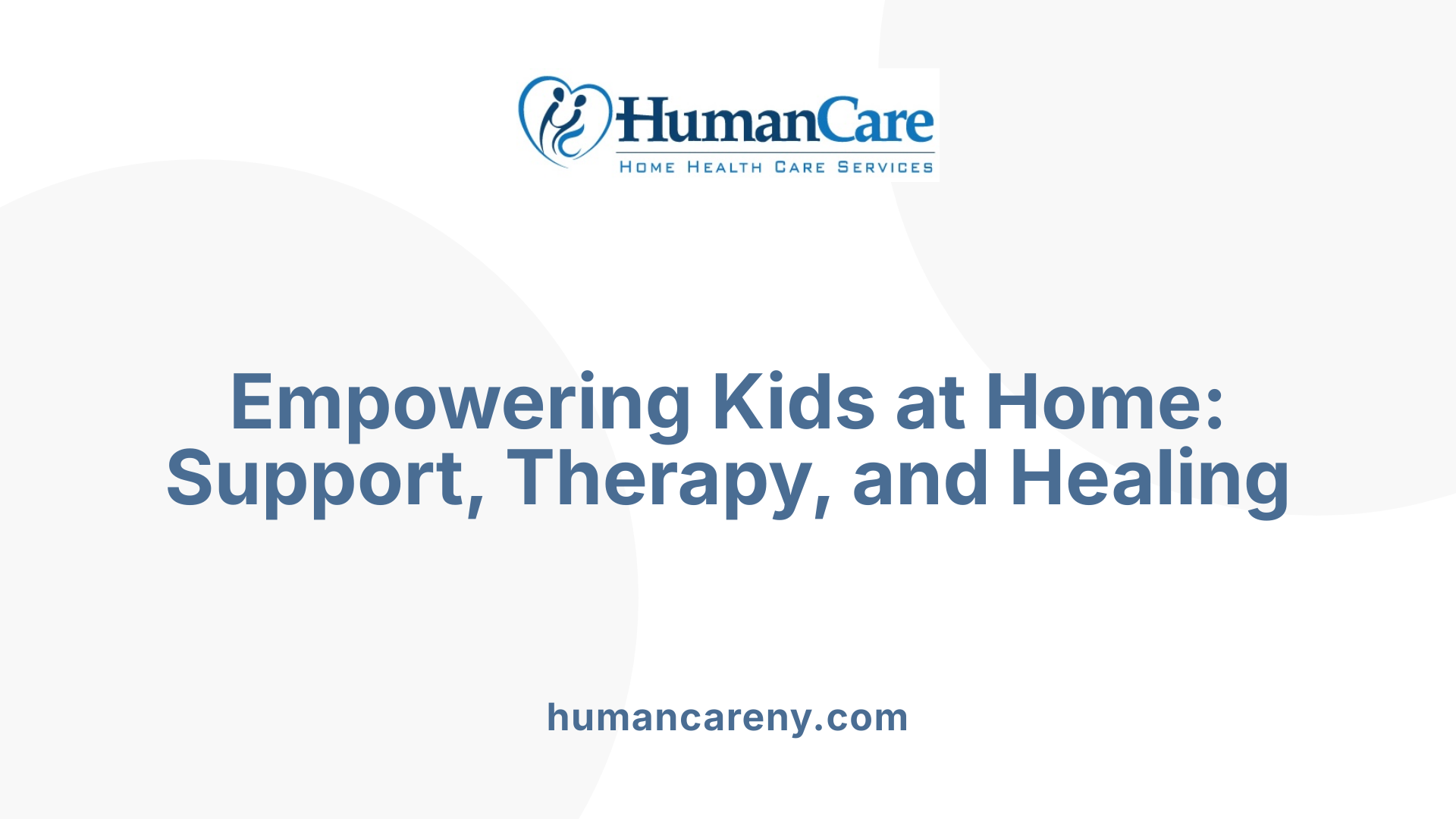
How Does Pediatric Home Health Care Promote Faster Healing and Improved Sleep?
Providing treatment at home allows children with developmental coordination disorder (DCD) to recover in a familiar, comfortable environment. This setting reduces stress and anxiety, helping children sleep better and heal faster compared to hospital stays. Sleeping in their own beds and maintaining normal routines supports overall physical and emotional well-being.
How Does Home Health Care Reduce Hospital Visits and Readmissions?
Frequent home visits by specialized clinicians enable ongoing monitoring and timely adjustments in care plans. This proactive approach prevents complications that might otherwise result in emergency visits or hospital readmissions. Acting as a bridge between families and pediatricians, home health care reduces the need for office visits while maintaining good communication.
In What Ways Does Home Health Care Promote Independence and Participation in Daily Activities?
Tailored care plans focus on encouraging children to engage in daily activities and therapies, fostering a sense of achievement and autonomy. Therapies like occupational and physical therapy, delivered in the home, help children develop coordination skills essential to independence.
How Does Consistency in Routines Support Emotional and Social Development?
Maintaining a consistent daily routine at home enhances the child’s sense of security and predictability. Being surrounded by family and familiar caregivers promotes emotional support, strengthens bonds, and encourages social interaction, which reduces feelings of isolation.
How Does Home Care Provide Relief and Confidence for Parents?
Home health providers assist families by preparing for emergencies and ensuring backup support. This guidance increases parental confidence in managing their child’s condition and reduces caregiving stress, contributing to better family stability.
What Is the Overall Impact of Pediatric Home Health Care on Quality of Life?
By combining medical treatment, emotional support, therapy, and family involvement within the comfort of home, pediatric home health care significantly improves the quality of life for children with DCD and their families. It promotes faster recovery, independence, and emotional well-being, while easing the caregiving burden.
| Aspect | Benefit | Explanation |
|---|---|---|
| Healing & Sleep | Faster recovery, better rest | Familiar environment reduces stress and improves sleep quality |
| Hospital Visits | Fewer visits and readmissions | Ongoing care and monitoring prevent complications |
| Independence | Encourages participation in daily activities | Tailored therapies enhance coordination and self-care skills |
| Emotional & Social Care | Builds emotional security and social skills | Consistent routines and family involvement reduce isolation |
| Parental Support | Relief and increased confidence | Emergency preparedness and backup support ease caregiver burden |
| Quality of Life | Enhanced overall well-being | Integrated home care meets medical and developmental needs effectively |
Looking Ahead: The Future of Pediatric Home Care for Children with Developmental Coordination Disorder
Pediatric home care stands as an indispensable resource for children with developmental coordination disorder, integrating specialized medical and therapeutic support within the comforting environment of home. By delivering personalized care plans, fostering family involvement, and utilizing programs like CDPAP, pediatric home health services not only enhance children's functional abilities but also nurture their emotional well-being and independence. Despite ongoing challenges related to access and quality, continued research, better funding, and workforce development promise to expand these benefits to more families. Embracing home-based care models offers a hopeful path toward improved outcomes and enriched lives for children coping with developmental coordination disorder and their families.

